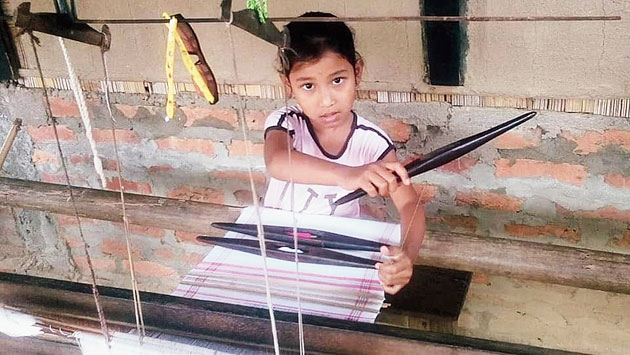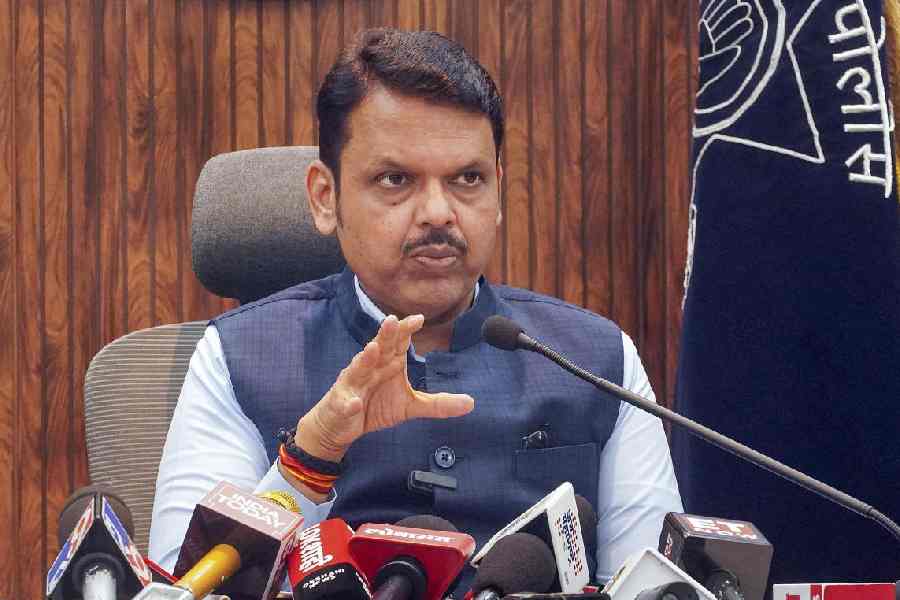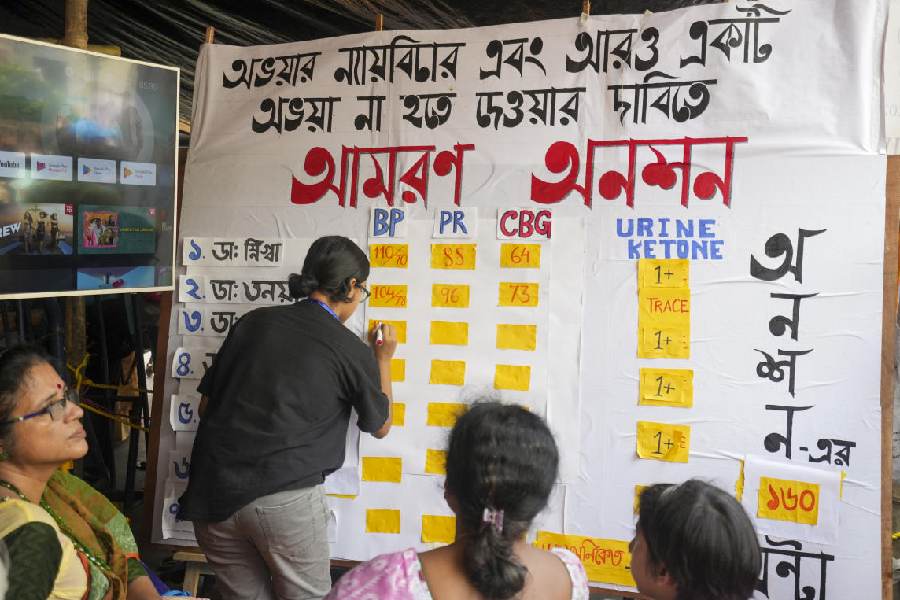Bristi Gogoi, 7, a class II student of Sri Sri Anirudhadeva Jatiya Vidyalaya at Kordoiguri village here in Tinsukia district of Upper Assam, is busy these days learning to weave a phulam gamosa, craft flutes and make fish nets and home appliances with bamboo and cane with her grandfather Hiren Gogoi.
Hundreds of school-going students in the rural belt of the state have engaged themselves in learning traditional and cultural professions as hobbies during the nationwide lockdown to prevent coronavirus infections, which was enforced last month and has been extended till next month.
There are 12 students at Kordoiguri village who have been living in shelter homes since the past 24 years after the massive flood and erosion devastated their villages, leaving them landless and jobless. They lost their lands in the flood as well.
Geetimoni Gogoi, 16, year who lives here and studies at Kordoiguri High School, will appear for the High School Leaving Certificate Examination next year. She told The Telegraph on Sunday, “There are 12 families with 52 members with only two TV sets and only one Android phone. As the electricity supply is not regular, the TV edition of educational programmes are missed by us. As the Internet services are very slow, we are having trouble with our online education. Moreover, we have been learning our traditional and cultural work to use the time and study with whatever books are available.”
It is not only the tale of flood victims families’ students, others are facing the same obstacles as well.
Sagar Shah of Daisajan had come home during Holi, leaving all his books in the hostel. Shah, a BSc second year student at Digboi College, said, “I was back in my village during the holidays leaving my books at the hostel and have been here since the lockdown. Now due to Internet service problems I am facing trouble studying.”
Kajol Haloi, a student at Nalbari’s ITI, who is now at her Kakopathar village, said, “It is very difficult to study on a mobile. How can we read PDF? The problem will be only increase if there is an examination.”
Teachers, parents and guardians said though online education has been started for continuation of studies during the lockdown, there are lot of obstacles in conducting and implementing it. The greatest obstacle is slow Internet, and those students who have the lack of resources are facing more trouble. Due to the weak Internet connectivity, messages and photos are rarely delivered on WhatsApp.”
“In such situations, we are facing problems in doing the assignments. The teachers are saying that they are not at fault. If we don’t submit assignments, marks will not be added. The government and university should understand our problems and suggest what should we do in such situations. Moreover, many students can afford only limited Internet data,” a student said.
Certain educational apps are regarded as unsafe and teachers are suspicious as there have been accounts of Facebook accounts being hacked into.
The information and technology department is working on tools for teaching, learning and assessment to make the online education and evaluation easier, experts said.











